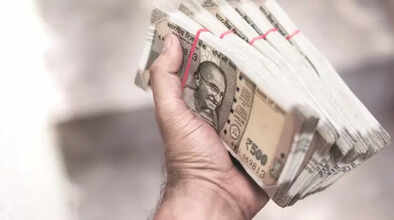Cash Limit At Home: You can keep only this much cash at home, income tax notice will come as soon as the limit is crossed..

Cash Limit At Home: Every day, news comes out across the country that the Income Tax Department raided a person's house or office and recovered a large amount of cash and valuables from there.
In such a situation, sometimes cash is confiscated (Cash rules) and sometimes the person is also arrested. In such a situation, you need to know what limit has been made for keeping cash at home. Know the full details about this in the news.
These rules have been made for seizing cash-
Many times such news comes out in India that the Income Tax Department raided a person's house or office and recovered a large amount of cash and valuables from there.
In such cases, sometimes cash is confiscated and sometimes the person is also arrested (Cash Deposit Rule). In this situation, the question often arises in the minds of people whether keeping more cash at home is a crime legally and how much cash can be kept at home.
Expert said this-
Tax and legal experts believe that no limit has been set by the Income Tax Department on how much cash can be kept at home.
That is, you can keep any amount of cash at home, it is just necessary that the money has been received from a valid source. This should be mentioned in your income tax return (ITR Rule).
It is necessary to give information about the cash source-
Under sections 68 to 69B of the Income Tax Act, many provisions have been made regarding income without source. If you are unable to give information about the source of cash (Cash deposit rule), then it will be considered as income without source and heavy tax and penalty can be imposed on it.
In this situation, the source may have to be proved-
There should be information in the tax return and records. Nothing has been said directly about the maximum limit of keeping no cash (Cash deposit rule in India). However, if someone has more cash than required and its source is not clear, then there is a suspicion.
In case of any investigation, you have to prove the source of every rupee (Cash deposit source) that is valid and you have recorded it in your tax returns and accounts.
You will have to pay a penalty of up to 78 percent-
If you fail to do so, that is, if you are unable to tell the correct source of cash, then in this situation that amount is considered undisclosed income and about 78 percent tax (Tax on cash deposit) and penalty has to be paid on it.
Friend for taxpayers and common people-
If you are a trader, then your cashbook should match your accounts. On the other hand, even if you are not a trader, it is very important to give information about the source of cash. Therefore, there is no need to be afraid of keeping cash (cash limit at home), just make sure that the money has been earned honestly and its complete account is available.
Disclaimer: This content has been sourced and edited from Hr Breaking. While we have made modifications for clarity and presentation, the original content belongs to its respective authors and website. We do not claim ownership of the content.

